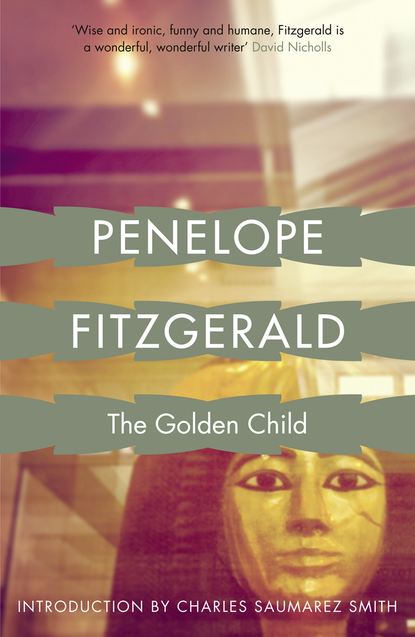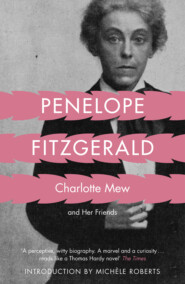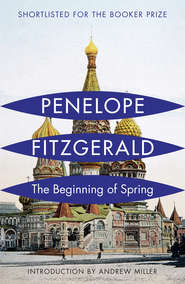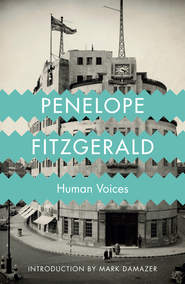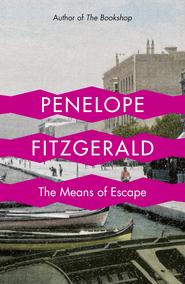По всем вопросам обращайтесь на: info@litportal.ru
(©) 2003-2024.
✖
The Golden Child
Автор
Год написания книги
2018
Настройки чтения
Размер шрифта
Высота строк
Поля
‘You will recall that the interview is to take the form of a short talk by Tite-Live Rochegrosse-Bergson from the Sorbonne — the distinguished anthropologist, anti-structuralist, mythologist and paroemiographer. Then there is Professor Untermensch, at present I think at Heidelberg. He has been invited, at his own request, to sit in. You are to make a few comments, a summing up, call it what you will …’
Sir William discharged a volley of foul smoke from his pipe.
‘If you want me to say what I think about Rochegrosse-Bergson …’
‘Hardly about, Sir William, but to. The whole discussion is to be on the highest level …’
Hawthorne-Mannering looked as though he were about to cry.
There was a faint disturbance in the outer office as Dousha moved in her chair. She could be seen through the green glass like an ample underwater goddess, slightly dislodged. The Deputy Director of Security came in.
‘Excuse me, sir. Just a word about the arrangements for this morning.’
So he didn’t trust me, thought Hawthorne-Mannering bitterly.
‘Ah, security,’ said Sir William. ‘Quite right. There’s a Frenchman coming. Good fellows enough, but you don’t want Frenchmen and gold too near each other. Remember all that trouble with Snowden.’
‘This document, sir — your copy of the secret report which, according to our information, concerns the genesis of the Exhibition.’
‘Did I have a copy?’ Sir William asked.
‘Our records show that you did, sir, a complimentary copy. You and the Director were the only two recipients in the Museum.’
‘Well, Allison may still have his copy, if you want one.’
‘With respect, sir, that is not quite the point. The report being, as I have indicated, at Cabinet level, I should like to be sure that it is in safe hands during today’s interviews.’
Sir William had been known, more than once, to leave confidential papers in a taxi or scattered about the reading room of his club.
‘Dousha may have mislaid it. Poor girl,’ said Sir William. ‘I’ve no idea why a girl like that was appointed as my secretary,’ he added unblushingly.
‘There are a number of minutes downstairs, sir, from yourself to Establishment, urging her appointment on grounds of hardship.’
‘Paper! paper!’ rejoined Sir William. ‘Fallen leaves! Faded leaves! But I’ll see to it. Yes, yes, I’ll get it under lock and key.’
‘The other matter is a little awkward, sir — rather personal. We are informed that this Untermensch is a bit of an eccentric’
Hawthorne-Mannering stirred slightly, feeling impelled to come to the defence of all savants, and perhaps of all eccentrics.
‘One might feel that last remark as somewhat reductive,’ he said. ‘Professor Untermensch is a noted Garamantologist who has devoted much of his life to a study of the Treasure without, of course, having actually ever seen it except in photographs and from parallel sources. One might call him a kind of saint of photogrammetry. He is, also, the acknowledged expert on the Garamantian system of hieroglyphic writing.’
Deputy Security’s business in life was to secure the safety of the objects he guarded. Their value, and the sanity of the staff, of both of which he had a low opinion, did not concern him.
‘To continue, sir. Our information is that Untermensch is, not to put too fine a point on it, pretty cracked. That’s to say he is obsessed with the idea of holding one of these objects from the Treasure, one of these Golden Toys or whatever, of actually looking at it close to and holding it in his hand. I don’t know whether you yourself, sir …’
‘Nothing to do with me,’ said Sir William. ‘I’ve made it clear enough, to you and to everybody else, that I’ve no intention of going down to look at it and no wish to see those things again on this side of the kingdom of shades.’
‘The Director himself will arrange for Professor Untermensch to have a closer view of one of the objects,’ interposed Hawthorne-Mannering. ‘He is hardly, perhaps, of sufficient standing … but this courtesy is to be shown to him, since he has been so very persistent …’
‘Well, in any case it’s too many people to see on one day,’ said Sir William, ‘but have it your own way.’
Hawthorne-Mannering lingered uneasily on the way out to speak to Dousha.
‘I’m afraid the old man has not been very well,’ he said. ‘At one point he failed even to remember my name. Has his heart been giving trouble?’ He could not make his voice sound sympathetic.
‘Not so much, I think,’ Dousha calmly replied.
As he left Sir William pressed the intercom with an untrembling finger.
‘I didn’t like that fellow, Dousha,’ he said, ‘Why doesn’t Waring Smith come and see me? What’s become of Smith?’
Waring Smith, as a junior Exhibition officer, was not, or should not have been, of any kind of importance in the Museum. Sir William had taken notice of him at the tail end of a committee meeting, because he was young, normal, unimpressed, sincere and worried.
By a turn of fate, however, Waring Smith had recently been given a little prominence. While Hawthorne-Mannering had been on one of the numerous sick leaves which his delicate constitution demanded, Waring had been obliged, since it was a job nobody else wanted, to prepare the catalogue for a small display of funerary inscriptions from Boghazkevi, singularly dull to all but confirmed Hittitologists. By going down and standing over the printers, he had even seen that this catalogue was ready in time. The little success had recommended him for further work on the present great Exhibition. It had, however, earned him the undying hatred of the returning Hawthorne-Mannering.
Yet Waring Smith was scarcely worth such concentrated resentment. He was not an exceptional young man. The average Englishman has blue eyes and brown hair, and so had he. From his grammar school he had gone on to spend three rather happy years studying Technical Arts at University. Locked in the canteen during a sit-in, he had met a young woman who was doing colour chemistry, and persuaded her without difficulty to share his narrow bedroom in the First Year block. They agreed without much resistance on either side to get married as soon as he got his first salaried job. He had asked himself, did he love Haggie? and an unsuspected second self had answered, Yes, he did.
Before his marriage Waring had found his life was one of progressive simplifications. After he had begun to live with Haggie he had seen much less of his other friends. To save housework they had taken off the legs of the bed and put it on the floor, and so on. His assessments mattered to him; he had specialised in exhibition techniques and had worked hard. They went out once a week to see films by leading French and Italian directors about the difficulties of making a film. Then they bought cans of beer and some crisps, went back to their room and expanded warmly in the dark. Now that he was married, on the other hand, he found it rather difficult to think of anything else beyond his job and his mortgage payments. In order to continue living in a very small terraced house in Clapham South, with a worrying leak somewhere in the roof and a stained glass panel in the front door, he had to repay to the Whitstable and Protective Building Society the sum of £118 a month. This figure loomed so large in Waring’s daily thoughts, was so punctually waiting for him during any idle moment, that it sometimes seemed to him that his identity was changing and that there was no connection with the human being of five years ago who had scorned concentration on material things. Furthermore, he was often in trouble with Haggie, who had to work in a typing pool, where her knowledge of colour chemistry was wasted, and felt that he should be able to get home earlier from the Museum than he often did. Yet Waring Smith had an instinct for happiness against which even the Whitstable and Protective Society could not prevail, and it was this instinct which Sir William had discerned and tried to encourage.
When Dousha rang down to Waring’s ill-ventilated cubby-hole of an office to say that Sir William would be glad of a cup of coffee with him, Waring had to ask whether he could come rather later, as he had been told to go down and see how things were going in the Exhibition itself. He had to check with Security and Public Relations, make sure that the display material was in place, and report back to Hawthorne-Mannering, still supposedly in charge of co-ordination.
At the sight of his tiresomely energetic subordinate, Hawthorne-Mannering felt his thin blood rise, like faint green sap in a plant, with distaste. He closed his eyes, so as not to see Waring Smith.
The closed eyes worried Waring a little, but he blundered on.
‘You ought to go down there, HM, you really ought.’ He had never quite known what to call Hawthorne-Mannering, who was too young — or was he? — for ‘sir’. Throughout the whole building he was known as the May Queen, but Waring tried to put this out of his mind. ‘It’s an amazing sight,’ he went on eagerly, ‘I’ve made a few notes, if you’d like to see them.’
‘How very much more than thoughtful of you. There will be no need, then, for you to tell me about it.’
‘But it’s worrying, honestly it is. They’re sticking it out so well — the queues, I mean — you can’t help feeling sorry for them. And when they get in they’re getting caught in the bottle-neck — the entrance to the Chamber of the Golden Child. They’re only letting them in four at a time. It’s like the Black Hole of Calcutta.’
‘The point of your comparison escapes me,’ said Hawthorne-Mannering. ‘The bottle-neck, as you call it, whatever objections were made by Security, is of course a simulation of the entrance to the original cave itself, so that the general public can recapture the atmosphere two thousand years ago, at dead of night, when the pitiful sarcophagus was secretly carried to its final resting-place.’
‘But they might go mad at any moment. Security knows that, but I don’t think the authorities do. And the cafeteria! There’s a life-size replica of the Golden Child in hardboard to beckon you in and even at this time in the morning there’s nothing left but luncheon-meat rolls.’
‘What is luncheon meat?’ asked Hawthorne-Mannering, shuddering slightly.
‘Why should they suffer like this?’ Waring pleaded. ‘Some of them have been all night in the train.’
Hawthorne-Mannering, still without opening his eyes, stretched out his long pale hands, turned them slowly over, and spread them out in one of his chosen gestures.
‘One’s hands are clean,’ he said.
Waring reminded himself that if he did not keep this job, it was not at all certain that he would get another one, and that the whole question of his salary was constantly under the scrutiny of the Whitstable and Protective Building Society. He returned to his cubby-hole, and went rapidly through his correspondence, which represented the scourings of a great Museum, passed on from the other departments. A series of letters begged the Museum to join the campaign against the misuse of resources; a dinner was to be held, at £15 a head, where the menu was to be written on the tablecloth to save paper. The NUT wanted all the glass cases in museums removed, so that the exhibits could become a meaningful action area, and the children could pick them up and relate them to their daily lives. ‘Why not?’ thought Waring. ‘It would pretty soon clear a bit of space.’ A confidential minute from Public Relations referred to Professor Untermensch. Properly it was their business to entertain him, but apart from his great knowledge, which could be taken on trust, was he of any real importance? Could not the Exhibition Department take him out for a meal (Category 4 Grade 2) and perhaps an entertainment? As he appeared to be German, what about an operetta? ‘A what?’ thought Waring.
He wrote careful notes on the letters and went to see if he could find someone to type his replies. He was in luck, and one of the girls was free.
‘Where do you have your hair cut, Mr Smith?’ she asked casually as she took his notes.





